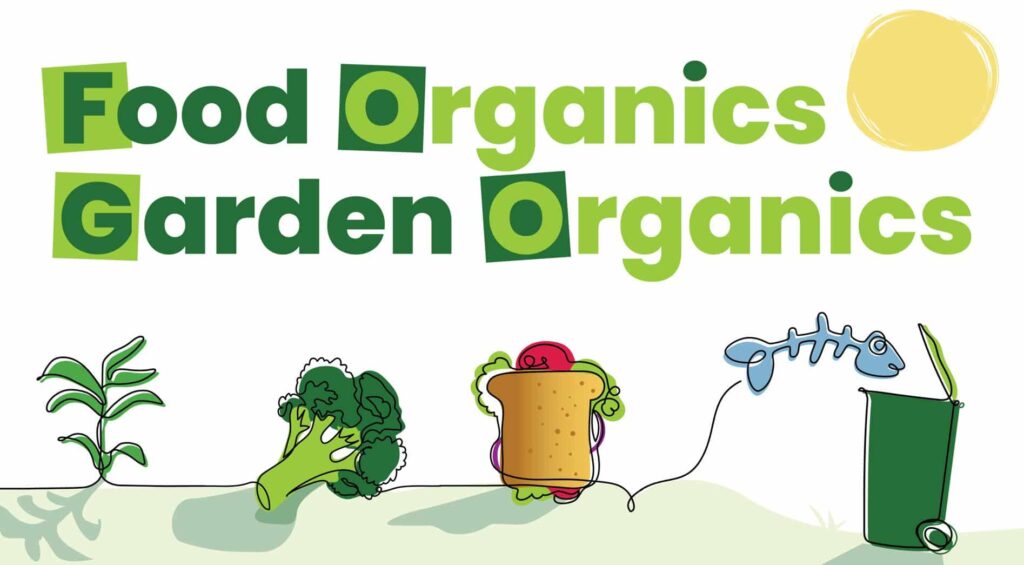
In an effort to cut waste to landfill, carbon emissions and disposal costs, 600 Bundaberg Region homes will trial food and green waste bins from October.
Bundaberg Regional Council has endorsed the Food Organics and Garden Organics (FOGO) trial following the completion of a business case.
FOGO is basically any natural food scraps from the kitchen (e.g. dinner leftovers, egg shells, offcuts) and any green waste from a domestic garden (e.g. grass clippings and tree trimmings).
FOGO materials are currently taking up more than half of the region’s waste going to landfill from the household waste bins collected weekly.
When it’s buried in landfill it produces methane (a harmful greenhouse gas) from the rotting food scraps and garden materials.
However, when separated and collected, the FOGO materials can be readily made into compost for use by farmers to provide nutrition, increased yield, increased carbon in soils and reduction in water loss for their farms.
From the FOGO trial Council will obtain real life data and learnings for review prior to fully committing to a FOGO service.
Waste and Recycling portfolio spokesperson Cr Tanya McLoughlin said the FOGO trial was part of Council’s commitment to diverting as much waste from landfill as possible.
“At the moment we send 30,000 tonnes of waste from household bin collections to landfill per year,” Cr McLoughlin said.
“Of that waste, food organics make up about 23 per cent and garden organics another 35 per cent.
“That means the introduction of a food and green waste bin collection service could divert thousands of tonnes of waste from landfill each year.
“This would, in turn, significantly reduce our regional carbon emissions.”
Council has been investigating the viability of introducing a weekly FOGO collection service with advice from the State Government regarding its Waste Levy confirming a significant financial impact would occur under current processes.
Currently, the State Government Waste Levy payable on household waste to landfill is $3.8 million.
However these State Government subsidies on household waste will be phased out, leaving a $26.6 million shortfall over the next 10 years if no action is taken.
This aligns with the Queensland Waste Management and Resource Recovery Strategy target to reduce waste to landfill.
What will a FOGO trial look like?
An initial 600 homes will be included in the trial from October 2023 with an additional 700 homes to be gradually added to the trial by December 2023.
Trial participants will be selected based on operationally efficient routes across the region and participation will be mandatory for those in the identified trial area.
Trial participants will be supported by Council’s Waste and Recycling team if they have individual specific needs for waste disposal.
The FOGO trial will involve the introduction of a new 240 litre FOGO bin which would be collected on a weekly basis.
The existing fortnightly recycling service would continue and any ‘residual waste’ – or in other words the remaining waste still destined for landfill – would also be collected on a fortnightly basis. This service and bin configuration is now common in many Council areas throughout Australia.
Trial participants would receive kitchen caddies in addition to their new FOGO bins.
There will be no additional charge during the trial period to those ratepayers included in the FOGO trial.
Pending the success of the FOGO trial, Council will continue to seek financial support from the State Government to help fund a full rollout within the region.





A 240 litre bin would be to big for a 2 person household, the smaller bin would be ideal
I THINK FOGO IS A WONDERFUL INITIATIVE. I WOULD BE HAPPY TO BE PART OF THE INITIAL ROLL-OUT.
About time Council got into line with others around the country that have been doing this for years.
Fantastic! What area has been selected for the trial? I for one put my hand up to be part of the trial.
I do hope it turns into a permanent fixture of our waste collection with no additional charge.
If at the end of the trail and additional cost will be added. I would recommend that a variety of bin sizes be offered and the cost determined by the size of the bin. Many Councils offer various sizes. As stated above a 2 person household would generally have substantially less waste than a family of 4 or more. We hardly ever fill our general waste bin.
This system works well in VIC. All foodstuffs in one bin “as is”, recycle stuff in another bin with NO cleaning or rinsing out (no water waste) cardboard and paper in another bin and glass in another. Yup. Extra costs to the ratepayer and more rent hikes to people who just get by paying the rip off rents they pay now. I have no idea where the council thinks the extra money will come from. Maybe the cost of this venture would be better put to use building public housing or helping the many “now” homeless in the area…..many too proud to tell anyone they are, or are on the brink of being homeless. Hmm.
Doesn’t seem fair to the people who already take green waste to be mulched and have their own compost bin for food scraps for their own garden to be charged for another bin they won’t use.